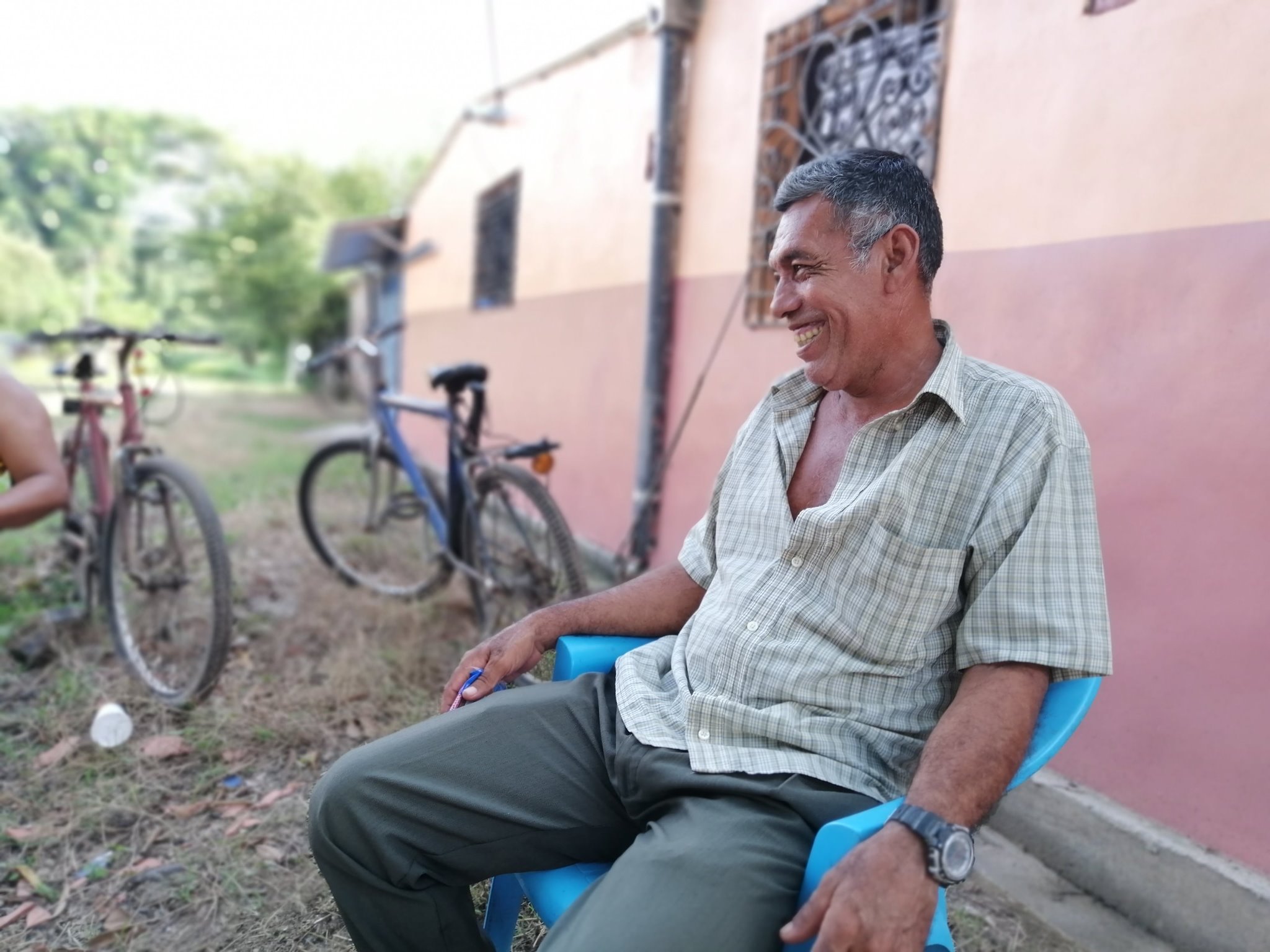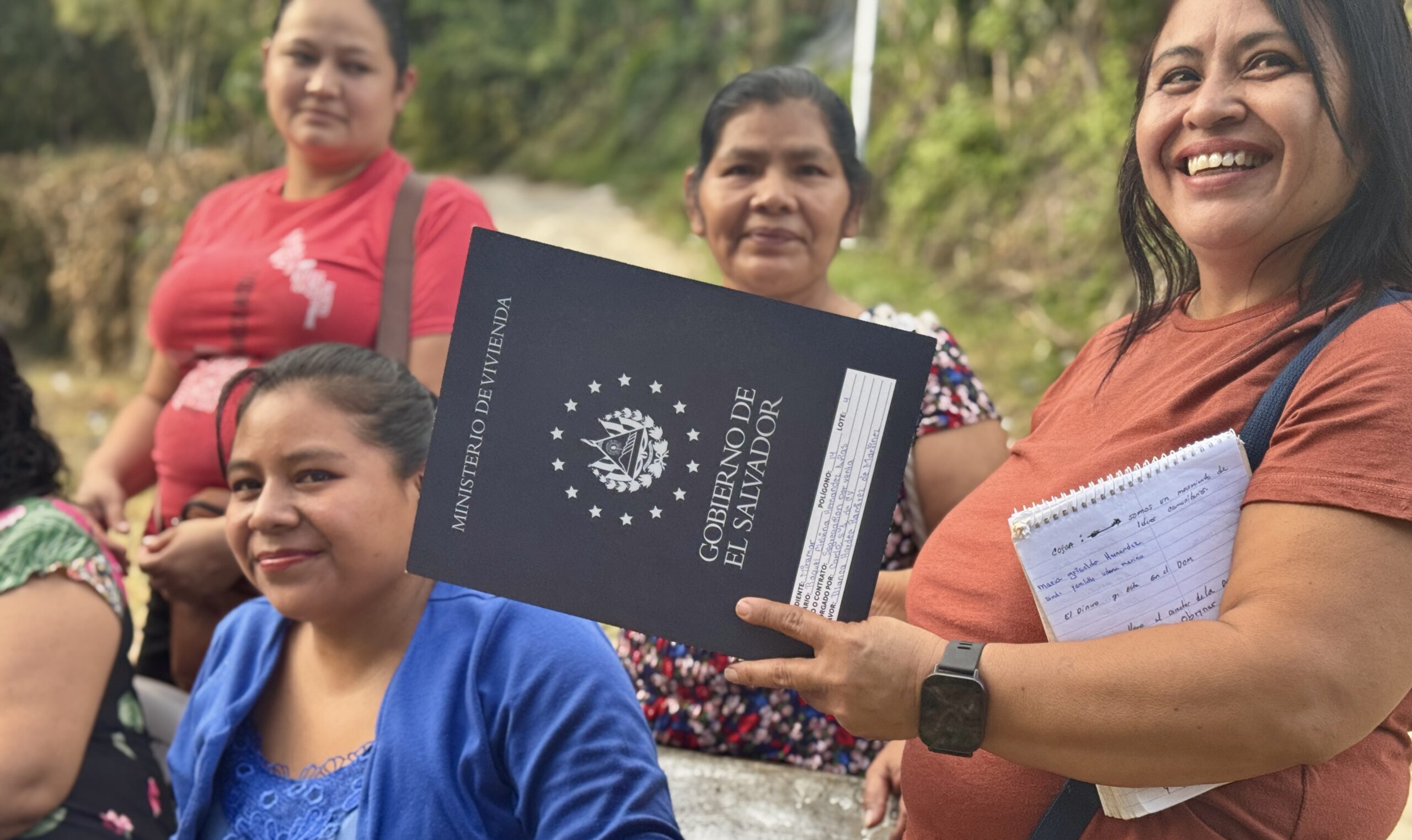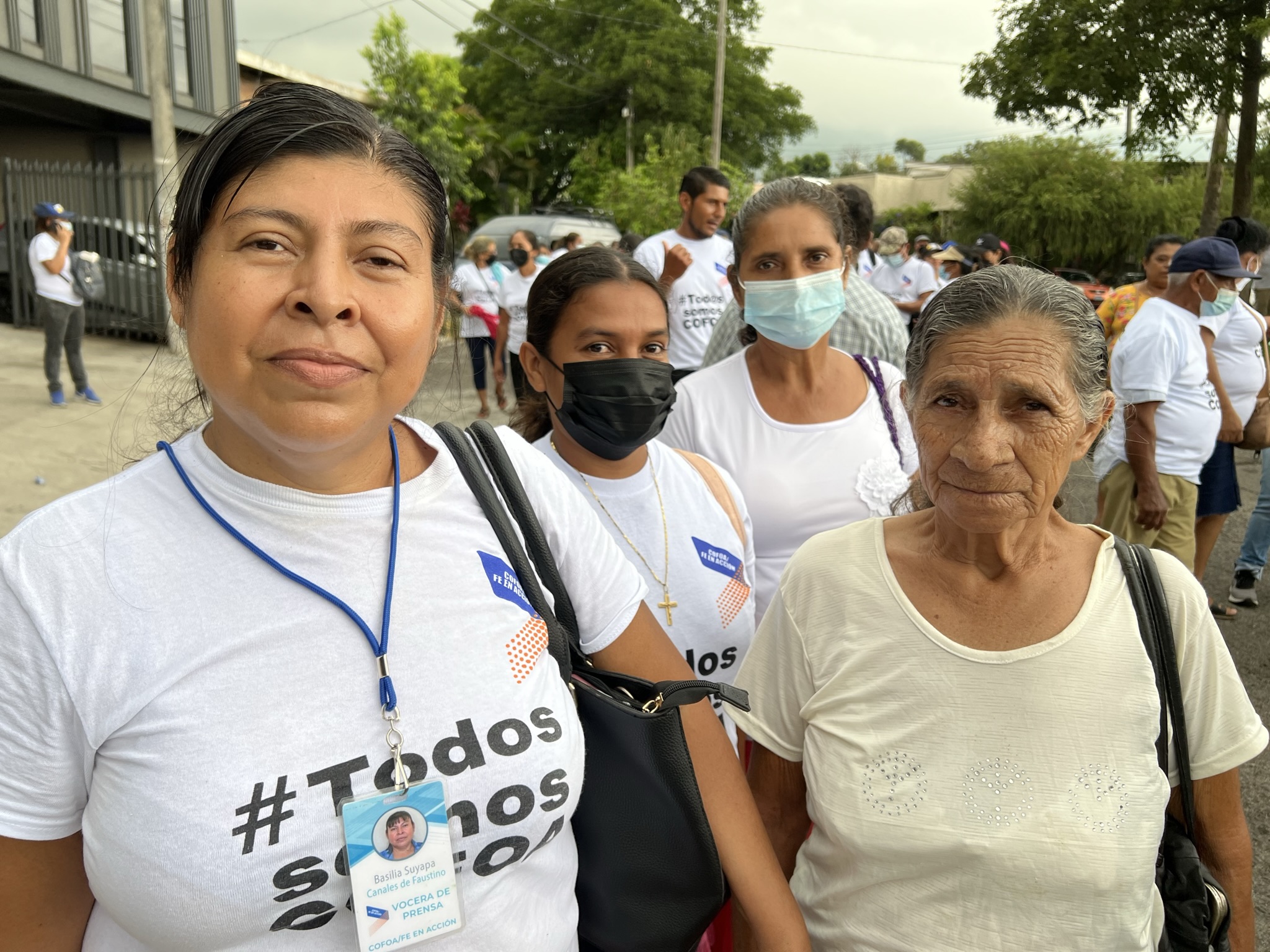Zacatecoluca, El Salvador — Salvadoran Housing Minister Michelle Sol announced that the government has regularized the land titles of 61,333 families and is prepared to move forward with…
EL SALVADOR: COFOA launches Health Care Campaign
Maria Tania Rodriguez joined a panel of grassroots leaders and organizers from Communities of Faith Organizing for Action (COFOA) at a press conference on Tuesday, October 1, to share their stories and announce their campaign for the constitutional right to health care for every citizen.
“My daughter, at the age of 3, had an epileptic seizure, which led me to seek medical attention at the Santa Teresa Hospital, where, due to medical negligence, they did not know how to treat her as they should. A private doctor costs more than $100 for a consultation. There are many mothers like me in El Salvador who are too poor to afford health care. That is why we call on President Bukele and the Minister of Health to help us,” said Maria Tania Rodriguez, a COFOA leader from La Paz Department.
Another mother, Sonia Rivera, from the La Libertad Department, described how she had to travel hours to San Salvador because the local clinics could not treat dialysis. Because of this lack of service, other patients like her died before seeing a doctor.
For the past six months, COFOA leaders have been reaching out to every resident in their local communities. Over and over again, people describe the lack of access to medical care. A month ago, COFOA leaders nationwide voted to launch this campaign. At the press conference, COFOA announced that on October 23, hundreds of COFOA leaders will deliver a letter to the Minister of Health, Francisco Alabi, with the hopes of beginning a dialogue about the status of health care in the country.
Specific recommendations that COFOA leaders want to discuss include the construction of a new hospital to serve sixteen communities in Sonsonate and Ahuachapán, paying Salvadoran doctors, nurses, and medical personnel adequately rather than recruiting from other countries, and investing more tax dollars in the health care system.
El Salvador’s healthcare system comprises both public and private facilities, but the public system is under-resourced and understaffed. The Ministry of Public Health and Social Assistance (MINSAL) and the Salvadoran Social Security Institute (ISSS) provide public health services. Private clinics and hospitals may offer better quality services than the public system, but only about 20% of people in El Salvador have health insurance.
The economy will likely be Bukele’s biggest challenge in his new term. More than a quarter of Salvadorans live in poverty, and unemployment is on the rise. The proposed budget for 2025 would increase spending for security forces while cutting spending on health care.
Alberto Velazquez, the director of COFOA, said that with an open dialogue, COFOA leaders hope to address the reason for a proposed “cut” to the budget next year and the implications for care for the population. ”Together, we are walking for health care.”



